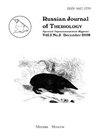啮齿类动物的亲子护理:最终原因和近因机制
IF 0.6
4区 生物学
Q4 ZOOLOGY
引用次数: 6
摘要
几十年来,啮齿动物父系抚育的进化一直吸引着生物学家。本文综述了与雄性抚育的产生和维持有关的终极问题(适应意义、进化)和近因问题(个体发生、机制)。父系关怀被认为是社会一夫一妻制的结果,但没有明确的假设能充分解释啮齿动物父系行为的进化。在个体发育过程中,父系关爱的发生、激活和维持是由神经内分泌系统中复杂的相互作用所控制的。根据物种的不同,雄性经验的不同组成部分以及不同的外源线索可能参与了父系行为的组织和激活。包括类固醇(睾酮、雌二醇、孕酮)和神经肽(催乳素、抗利尿素、催产素)在内的几种激素参与了亲代行为的开始、维持,或同时参与了亲代行为的开始和维持,包括直接的父亲照顾。研究发现,睾酮的作用并不是普遍存在的,而且是有物种特异性的。至于雌激素和神经肽,需要进一步的研究来更好地了解这些激素在激活和维持啮齿动物父系行为中的作用。目前的研究表明,啮齿动物的雄性亲代抚育在很大程度上是一种表观遗传现象,未来的研究将集中在影响啮齿动物父代行为的表观遗传修饰上。本文摘自:Gromov vs . 2020。啮齿类动物父系抚育的最终原因和近因机制[j]。Vol.19。第一。P.1-20。doi: 10.15298 / rusjtheriol.19.1.01。本文章由计算机程序翻译,如有差异,请以英文原文为准。
Paternal care in rodents: Ultimate causation and proximate mechanisms
The evolution of paternal care in rodents has intrigued biologists for over decades. In this paper, both ultimate (adaptive significance, evolution) and proximate (ontogeny, mechanisms) questions related to the emergence and maintenance of male paternal care are reviewed. Paternal care is thought to be a consequence of social monogamy, but no definitive hypothesis adequately explains the evolution of paternal behavior in rodents. The onset, activation and maintenance of paternal care are shown to be governed by complex interactions in neuroendocrine systems that change during ontogeny. Depending on the species, different components of male experience as well as different exogenous cues are likely to be involved in the organization and activation of paternal behavior. Several hormones, including steroids (testosterone, estradiol, progesterone) and neuropeptides (prolactin, vasopressin, oxytocin), are involved in the onset, the maintenance, or both the onset and the maintenance of parental behavior, including direct paternal care. The effect of testosterone was found to be not universal and, moreover, species-specific. As for estrogens and neuropeptides, further investigations are needed to better understand the role of these hormones in activation and maintenance of rodent paternal behavior. Current research shows that male parental care in rodents is, to a great extent, an epigenetic phenomenon, and future studies will focus on the epigenetic modifications that can affect the paternal behavior in rodents. How to cite this article: Gromov V.S. 2020. Paternal care in rodents: ultimate causation and proximate mechanisms // Russian J. Theriol. Vol.19. No.1. P.1–20. doi: 10.15298/rusjtheriol.19.1.01.
求助全文
通过发布文献求助,成功后即可免费获取论文全文。
去求助
来源期刊

Russian Journal of Theriology
Agricultural and Biological Sciences-Animal Science and Zoology
CiteScore
0.90
自引率
33.30%
发文量
0
期刊介绍:
The Russian Journal of Theriology publishes papers on all aspects of mammalian biology: taxonomy, zoogeography, ecology, behavior, morphology, development, physiology, paleontology, and evolution. Studies of extinct as well as extant taxa are included. Reviews are also published; these may be invited by the Editorial Board.
 求助内容:
求助内容: 应助结果提醒方式:
应助结果提醒方式:


